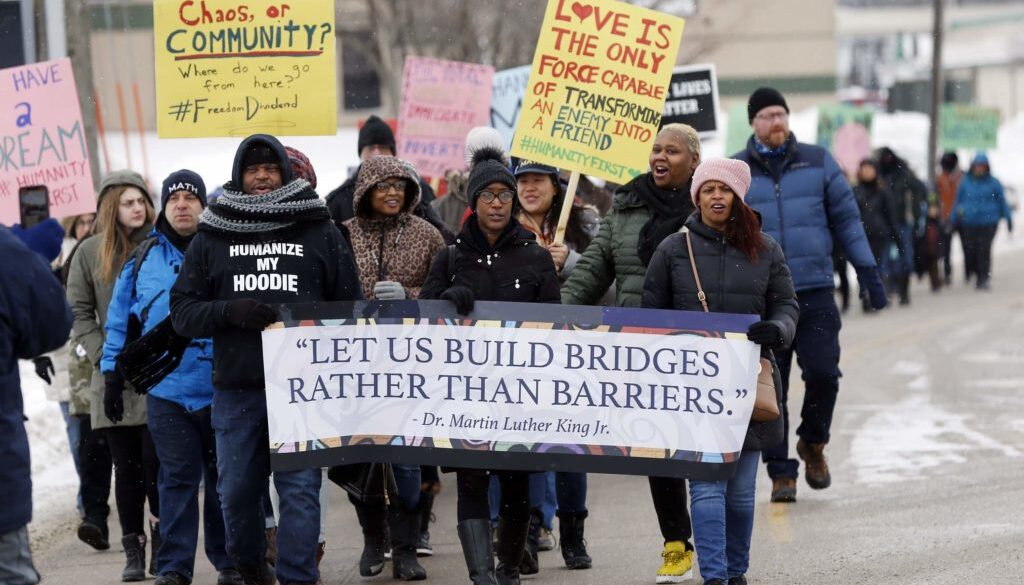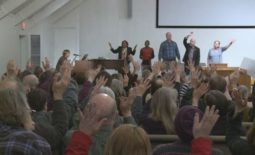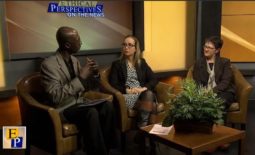Rabbi Hugenholtz’s Martin Luther King Day Speech
In preparation for this MLK Day, I thought hard what I should speak on. I am a newcomer to this beautiful country, an immigrant, a Jewish leader in a time of rising anti-Semitism and a white woman who is yearning to learn about the African American experience as well as reckon with the legacy of her own skin color.
We who walk with both a sense of vulnerability as well as our own privilege are called to embrace our complexities and contradictions. People far more eloquent, learned and experienced can offer wisdom on the legacy of Dr. King.
What I would like to offer instead are some of my personal reflections.
I am honored to stand here, as I carry with me two verses of the Hebrew Bible:
‘The tongue has the power of life and death’ (Proverbs 18:21)
– and –
‘The human spirit is the lamp of the Eternal, illuminating one’s innermost being’ (Proverbs 20:27).
In our current age, the tongue continues to bring discord, whether through social media or the many verbal paper cuts minorities contend with. The Jewish tradition places a great premium on guarding our tongue; sheathing its sharpness and wielding it responsibly, kindly and effectively.
We call this ‘shemirat ha’lashon’, the guarding of the tongue. This drills to the core of who we are called to be as human beings, and how we are obligated to treat every image-bearer of the Divine.
The second verse is the inner voice of the first verse. It is through the illumination of our own souls that we can examine our own implicit biases, accumulated prejudices, come to terms with our own shortcomings and lovingly grow our consciousness.
This is hard and holy work;
it is quiet and courageous work,
it is important and essential work.
It is the ‘mussar’, the moral lesson of our own power.
Dr. King’s great hope and deep knowing as a man of faith steeped in our shared Scriptures, is that he knew hearts of stone could be turned to hearts of flesh. His dream was not for lack of confrontation but because of it; it was a vision built on speaking truth to power. Human beings must all speak truth to our own power.
It should be superfluous for me to say that as a rabbi, as a religious Jew, as a human being, I am anti-racist. That I condemn bigotry at every turn. But that would not get to the heart of the matter. What is more meaningful, is that when vulnerable communities – including my own – are confronted with hatred, that we pledge our continued efforts to become more honest, more open and more effective in our own anti-racism.
To continue building deep, knowing, honest and loving relationships across our communities. To stand in unequivocal solidarity with our brothers and sisters here today.
As Robin Di’Angelo writes in ‘White Fragility – Why It’s So Hard for White People to Talk About Racism’: ‘I didn’t choose this [racist] socialization… but I am responsible for my role in it… Interrupting racism takes courage and intentionality, so in answer to the question, where do we go from here?, I offer that we must never consider ourselves finished with our learning… it is a messy, lifelong process… It is also deeply compelling and transformative.”[1]
Our words and our works matter. Our love and solidarity matters. Our curiosity about each other and our realization of how little we may know and how much we can grow, matters. As a rabbi, I know that all of us here are being called – uniquely and differently, but by the same Voice. In the words of our Sages: “You are not obligated to complete the work, but neither are you free to desist from it (Pirke Avot 2:21).”
I stand with you, eager to learn, determined to build. You have my heart. May the Holy One of Blessing walk with us in this awesome endeavor. Amen.
[1] Di’Angelo, Robin, ‘White Fragility – Why It’s So Hard for White People to Talk About Racism’, pp. 149-154





